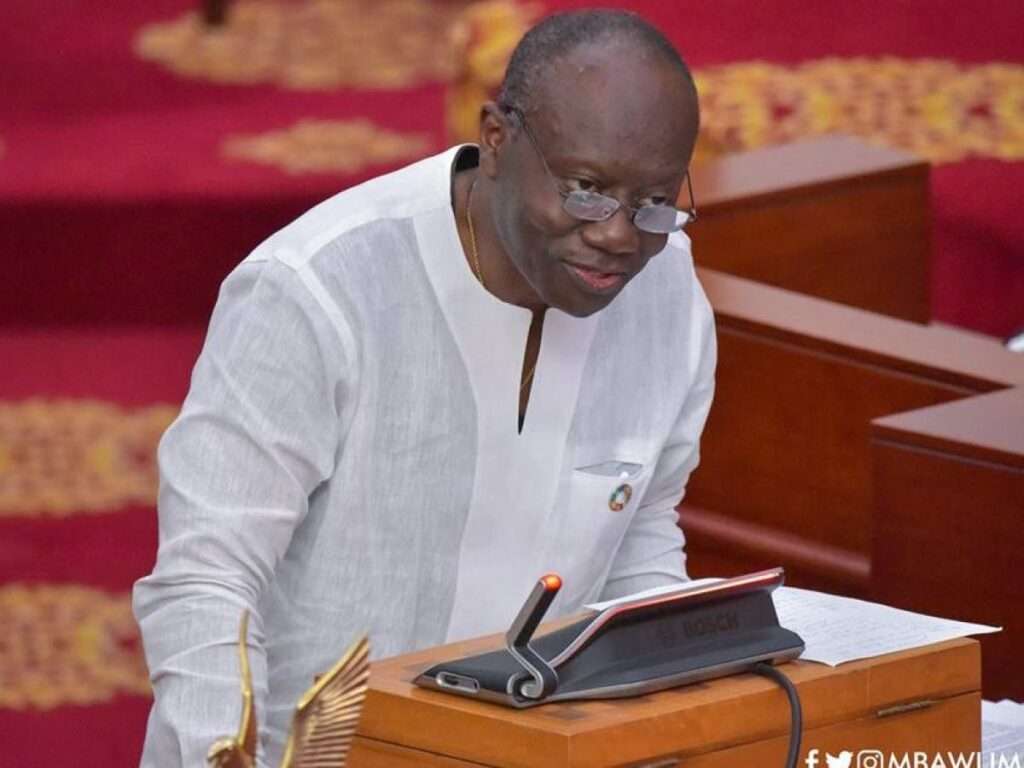The levy imposed on the profit before tax of banks in the country earlier this year is among one of the best performing tax handles introduced by the government in 2021. Target
According to data from the ministry of finance, government has so far collected a total of GH¢146,359,313 since the introduction of the tax till the end of September 2021.
The government was expecting this particular tax to mobilize a total amount of GH¢133,708,405 within the first three quarters of the year but the tax has performed beyond the expectations of the government.
Now, government expects this tax to bring in a total of GH¢223,662,473 for the 2021 fiscal year.
Classified as one of the taxes on income and property, the government expects the proceeds from the financial sector cleanup Levy to rise each year till at least 2025.
For the 2022 fiscal year, government expects the tax to rope in a total amount of GH¢252,793,529. This means government, realizing how well the tax handle is performing, decided to increase its expected proceeds by GH¢29,131,056 in the 2022 fiscal year, representing year-on-year growth of 13 percent over the projected outturn in the 2021 fiscal year.
Rationale for the Financial Sector Recovery Levy
Parliament enacted the Financial Sector Recovery Levy (FSRL), 2021 (Act 1067) to impose a special levy on banks to raise revenue to support the financial sector reforms and to provide for related matters.
Act 1067 imposes a Financial Sector Recovery Levy of five percent (5%) on the profit before tax of a bank. According to Finance Minister, Ken Ofori-Atta, the Levy will be reviewed in 2024.
The Finsec Levy is payable by a bank other than a rural bank or a community bank. The Levy is payable on or before the following dates of each quarter of the year of assessment: 31st March; 30th June; 30th September; and 31st December.

Explaining the rationale behind the clean-up Mr. Ofori-Atta, indicated that the clean-up was necessary because of mismanagement at some financial institutions which led to depositors’ funds being locked up with no hope of such funds being recovered.
This action however, costs the state billions of Ghana Cedis with many people insinuating that there were political motivations behind some of the collapse banks.
“This was a sobering but necessary action that in total is costing the state in excess of GH¢21 billion of taxpayers’ funds. These are funds that could have been otherwise deployed to support the development agenda of the government”.
Ken Ofori-Atta
Performance of other newly introduced taxes
Another newly introduced tax that performed so well in the first three quarters of the year was the sanitation and pollution Levy. Classified by the ministry of finance under the ‘other revenue’ category, the sanitation Levy mobilized a cumulative amount of GH¢188,190,769 in the first three quarters of 2021, exceeding the government’s target of GH¢161,670,376 for the period.
Based on its sterling performance, government now expects the sanitation Levy to bring in a total of GH¢313,579,550 to its coffers at the end of the 2021 fiscal year. With the tax exceeding its target by GH¢26, 520,393 or 16.4 percent in the first three quarters of the year, government now expects this tax to yield a total of GH¢264,400,000 in the 2022 fiscal year.
The COVID-19 Health Levy, however, missed its target in the first three quarters of the year. Expected to rope in a total of GH¢431,197,217 between Q1 to Q3 2021, government was only able to raise GH¢362,272,125 from the Health Levy.
Despite missing the target, the government is still hopeful that this tax handle could cause a surprise by bring in a total of GH¢936,704,295 at the end of the 2021. For 2022, government expects the COVID-19 Levy to contribute a total of GH¢1,141,566,246 to its total revenue coffers. This means the taxes, which were not performing well initially, have now started picking up but the impact on households and businesses remain a major concern.
READ ALSO: Issues That led to a Drop in Maths Pass to be Addressed- Education Minister























